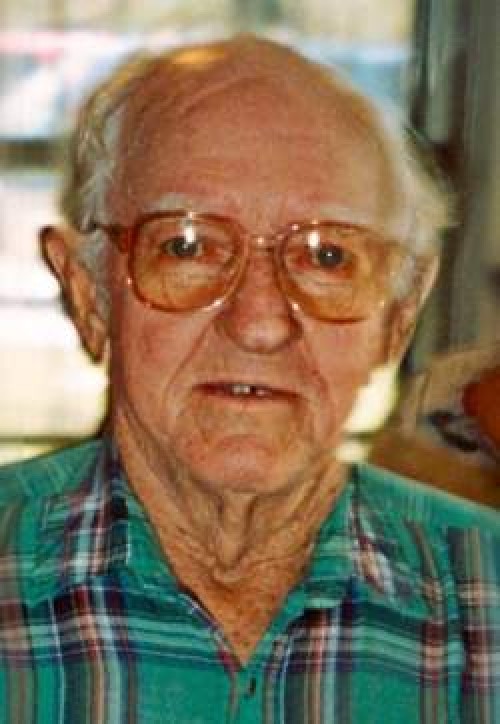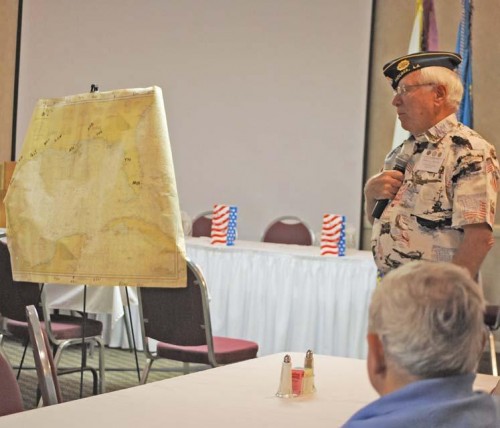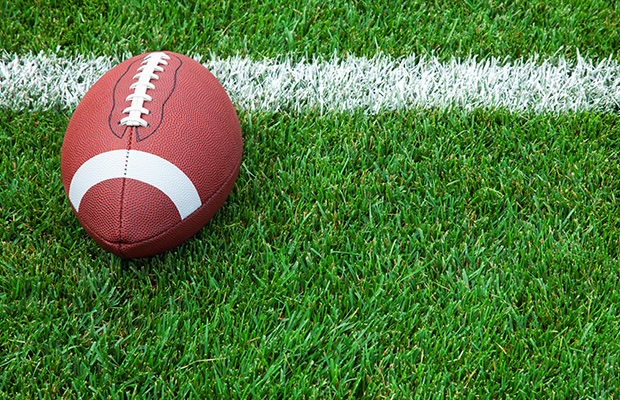
Andrew Galliano Sr.
October 19, 2010
Local historian revisits WWII submarine warfare
October 21, 2010It takes a large amount of money to run a collegiate athletic department.
Rob Bernardi knows that better than anyone, as he’s served as Nicholls State’s athletics director for the past decade.
So that’s why with the Colonels’ athletic budget shrinking year after year because of statewide budget cuts, Bernardi and his staff have taken a proactive approach, reaching out to external sources to keep the department afloat despite troubling economic times.
“We’re continuing to do what we’ve always done, and that’s to help support ourselves,” Bernardi said. “Probably more than a third of our budget is from revenue that we generate ourselves. That’s selling tickets, that’s doing fundraisers, that’s doing anything we can to fend for ourselves.
“We are in a position that’s not uncommon for us with these cuts, so we’re just continuing to try and gain more outside revenue from different sources,” Bernardi added.
One of the ways the Colonels have worked to stay afloat is through game-guarantee revenue.
The Nicholls State football team has played three Division I opponents this season and collected a sizeable paycheck with each game.
The men and women’s basketball teams also have similar games scheduled for their upcoming seasons, as well, which Bernardi said has been a boost economically to the department.
“This year, we have more than a million dollars that we’ve brought into our department through those game guarantees,” Bernardi said. “Those have been a tremendous help.”
The ability to book all of those games is a testament to the unselfishness of the Colonels’ coaches, according to Bernardi.
Playing up in competition level often forces the Colonels to endure a lop-sided loss the team would like to avoid in a perfect world.
“This is my 10th year at Nicholls and I can honestly say this is the most unselfish collective group of coaches we’ve ever had,” Bernardi said. “None of them ever balk about playing those games. We know sometimes they’re not fun to play, and we know sometimes they get a little overbearing and I understand that more than anybody. But all of our coaches have been willing to do it, because they know it’s what’s best for our department. And trust me, those games have affected our bottom line dramatically.”
Another way Nicholls athletics has generated revenue is through a partnership with a sports marketing firm.
The university has partnered with the marketing firm K.P. Sports in an effort to boost the school’s visibility across the region and state.
“What they are doing is helping us sell corporate sponsorships, which can also lift the amount of money we can take in,” Bernardi said. “That has been very good for us.”
Nicholls State has also gotten additional funding through Louisiana appropriations.
Those monies, which Bernardi said the school had never previously gotten, are what is funding the completion of the Colonels’ baseball facility.
And Bernardi said he hopes to get additional funds to finish other projects, as well.
One project on campus that could potentially be on the short list is the Colonels’ Soccer Complex, which was scheduled for a facelift before an unforeseen conflict put the project on hold.
“We’ve taken some student fee money that we had set aside for a baseball project and we’ve rededicated that to soccer,” Bernardi said. “But with these state appropriations, we’ll continue to try and look for some of those sources that quite frankly in the past we hadn’t gotten, but could help us going forward.”
But despite all of the in’s and out’s of the tough economic times, nothing beats a good, old-fashioned fund raiser.
And those have helped, too, which Bernardi said is another credit to the unselfishness of the Colonels’ coaches.
“We’re well aware of the condition of higher education all throughout this state,” Bernardi said. “Our coaches, our staff and everyone here is used to having to go out and raise money to have to make ends meet. We’re going to continue to do that, just like we’ve done this year, especially.”
And no matter how tough things get, there was one point the athletics director wanted to make clear: athletics will survive at Nicholls State University. And at the Division I level, as well.
“Whatever we’re asked to do in terms of our budget by [Nicholls State President Stephen] Hulbert, we’re going to continue to do,” Bernardi said. “But with that said, nothing in the plans involve cutting athletics or dropping sports or going to a different membership level. Mr. Hulbert and I are committed to keeping this program alive and at the Division I level.”
Hulbert agreed and shot down any and all rumors of a downsized athletics department at last week’s town hall meeting.
“I’ve heard all of the rumors,” he said. “I’ve heard that we’re going to NAIA, that we’re going to Division III and even that we’re going to Division II. I’ve heard people say, ‘Why do you even have athletics? Cut athletics and you can save about a million dollars.’ But every decision we make has both intended and unintended consequences. … Right now, we have about 300 athletes on this campus and about another 100-150 people who are involved on this campus because of athletics, whether it’s athletic trainers or students who are getting degrees in that area. … You take those people out of our newly-built residence halls that we’re paying for, then you can’t make those bond payments anymore.”
While Nicholls has had to search for independent funds, there’s been little to no effect to LSU since the budget cuts have arrived.
That’s because the Tigers’ athletic department is completely self-sufficient, having turned a profit each year since 1987, thanks in part to huge ticket sales figures, merchandising revenue and independent donations from the Tiger Athletic Foundation.
In fact, the LSU athletics department actually does one better, and actually donates back approximately $3 million per year to the University, thanks to large revenue the school receives from the BCS.
Of LSU’s NCAA-sponsored sports, only football, baseball and men’s basketball turn profits annually.
But football’s gains are so strong annually that they are able to easily offset whatever losses sustained in the other sports.











